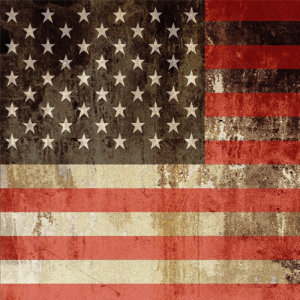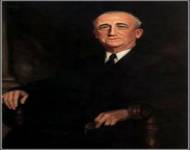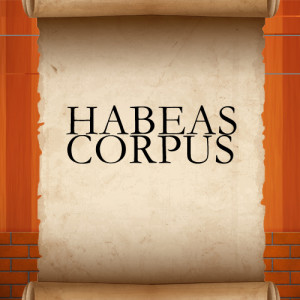Menu
Hot-Topics
May 17, 2022 | SCOTUS Wraps Up Oral Arguments for the Term
Category: Supreme Court Decisions

Kingsley v. Hendrickson: The Objectively Unreasonable Standard for Excessive Force Claims
In Kingsley v. Hendrickson, 576 US _ (2015), the U.S. Supreme Court addressed the legal standard for finding unconstitutionally excessive force during pre-trial detention. By a vote of 5-4, the justices held that a pretrial detainee pursuing an ex...

Abood v. Detroit Board of Education: Public Unions, “Agency Shop” and the First Amendment
In Abood v. Detroit Board of Education, 431 U.S. 209 (1977), the U.S. Supreme Court held that the First Amendment to the U.S. Constitution does not prohibit governments from requiring non-union public employees to pay their “fair share” of dues f...

Johnson v. the United States: ACCA Unconstitutionally Vague
In Johnson v. the United States, 576 US _ (2015), the U.S. Supreme Court held that the residual clause of the Armed Career Criminal Act was unconstitutionally vague and violated the due process rights of the petitioner. The statute imposes increased ...

Alabama Dept. of Revenue v. CSX Transportation: Tax Discrimination under the 4-R Act
In Alabama Dept. of Revenue v. CSX Transportation, 135 S.Ct. 1136 (2015), the U.S. Supreme Court addressed what constitutes tax discrimination under the Railroad Revitalization and Regulation Reform Act of 1976, otherwise known as the “4-R Act.” ...

Jennings v. Stephens: Certificate of Appealability Not Required for Habeas Petitioner
In Jennings v. Stephens, 135 S.Ct. 793 (2015), the U.S. Supreme Court addressed how to apply the Court’s decision in United States v. American Railway Express Co., 265 U. S. 42 (1924) to habeas relief. In that case, the Court held that an appellee ...

Davis v. Ayala: Excluding Attorneys from Batson Hearing Was Harmless Error
In Davis v. Ayala, 135 S. Ct. 2187 (2015), the U.S. Supreme Court considered whether it was a harmless error to exclude defense counsel from the Batson hearing. A deeply divided court ultimately answered yes, highlighting that habeas petitioners are ...

Warger v. Shauers: Interpreting Federal Rule of Evidence 606(b)
In Warger v. Shauers, 135 S. Ct. 521 (2014), the U.S. Supreme Court addressed Federal Rule of Evidence 606(b), which provides a juror may not testify about any statement made or incident that occurred during the jury’s deliberations during “an in...

Woods v. Donald: The Standard for Habeas Relief
In Woods v. Donald, 135 S.Ct. 1372 (2015), the U.S. Supreme Court clarified when a federal court may grant habeas relief. In a per curium opinion, the justices unanimously held that court may only grant such relief when the state court’s decision i...

Christeson v. Roper: Counsel Meets “Interests of Justice” Standard
In Christeson v. Roper, 135 S. Ct. 891 (2015), the U.S. Supreme Court addressed the requirements for counsel substitution under "the interests of justice" standard. In a 7-2 per curium decision, the majority held that a conflict of interest is ground...

Week in Review: SCOTUS Chides California Court & Adds Drunk Driving Case
Last week, the U.S. Supreme Court issued its opinion in DIRECTV, Inc. v. Imburgia, holding that the California Court of Appeal erred in finding an arbitration clause required the application of state law despite its preemption by the Federal Arbitrat...
Previous Articles
SCOTUS Wraps Up Oral Arguments for the Term
by DONALD SCARINCI on May 17, 2022
The U.S. Supreme Court has concluded its oral arguments for the October 2021 Term. The justices hea...
SCOTUS Rules Censure of Elected Board Member Didn’t Violate First Amendment
by DONALD SCARINCI on May 10, 2022
In Houston Community College System v. Wilson, 595 U.S. ____ (2022), the U.S. Supreme Court held th...
Supreme Court Breach Is Not the First Involving Roe v. Wade
by DONALD SCARINCI on
The recent disclosure of Justice Samuel Alito’s decision purporting to overturn Roe v. Wade is ar...
The Amendments
-
Amendment1
- Establishment ClauseFree Exercise Clause
- Freedom of Speech
- Freedoms of Press
- Freedom of Assembly, and Petitition
-
Amendment2
- The Right to Bear Arms
-
Amendment4
- Unreasonable Searches and Seizures
-
Amendment5
- Due Process
- Eminent Domain
- Rights of Criminal Defendants
Preamble to the Bill of Rights
Congress of the United States begun and held at the City of New-York, on Wednesday the fourth of March, one thousand seven hundred and eighty nine.
THE Conventions of a number of the States, having at the time of their adopting the Constitution, expressed a desire, in order to prevent misconstruction or abuse of its powers, that further declaratory and restrictive clauses should be added: And as extending the ground of public confidence in the Government, will best ensure the beneficent ends of its institution.
Awards




